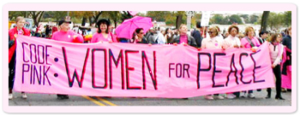How the bombings in Iraqi Kurdistan affect us

By Nancy Mancias and the End Cross Border Bombing coalition
On July 6, 2021, near the villages of Dohuk, a series of very heavy bombings took place on the civilian population. Since 2015, the ongoing bombings led by the Turkish and Iranian governments. In contravention with the international agreements that Turkey has signed with Iraq, the bombing of the Sinjar region in Dohuk Province is expanding beyond the limited 30 km (little over 18 miles) of entry to the region’s border.
The impact of the bombings are devastating: it has caused numerous civilian casualties; for instance, in the last operation put in place by Turkey, “Operation Claw-Lightning” (April 2021), over 1500 civilians have had to leave their villages (this data comes from the international NGO Christian Peacemaker Teams.
Turkey has also established several military bases beyond the 30km (roughly 18 miles) line, taking land from villages and generating a massive environmental impact on the territory of Iraqi Kurdistan. Turkey justifies the invasion and the attacks as an operation against the PKK; however, most of the territories and villages bombed civilians, causing them to suffer. In addition, Iran has also committed a series of bombings in recent months along the Kurdistan-Iran border, creating much damage to the territory and hundreds of displaced people from villages.
Concerning these violations, the Iraqi Kurdistan Government has never taken any serious action against Turkey and Iran, nor has it made any effort to support the civilian population. Even though the Kurdistan authorities are not taking responsibility for the families displaced by the bombings, they are not granting any humanitarian support. For years, the families requested that the Government recognizes the civilian victims. The local authorities ignore their requests. The families affected by the bombings have often asked that their dead relatives should be recognized as martyrs or labeled as unjustly killed. To date, families have never received an answer from the local authorities.
The Turkish Government has adopted a new strategy of environmental devastation to exacerbate the situation in the latest air and land-based attacks.
Because of the bombing, the territory is already subject to constant impoverishment, making it impossible for the local population to use agriculture and livestock, damaging life in the villages and causing many displaced persons. But for a few months, Turkey has also started to cut and burn trees through land attacks. In May, the Turkish attacks burned 4,181 land dunes in the Dohuk Province. Large-scale fires, which the Government of Kurdistan cannot control, leave the responsibility to the local civilian population, which is certainly not equipped with the necessary tools to tame them.
Another weapon that Turkey uses to assault villages all over the border is blocking and damaging water infrastructure. For example, the recent bombing has damaged the pipes of two villages in Dohuk province that are deprived of water. The lack of security in the area delays and also prevents reconstruction work. In addition, after undergoing massive bombing, 60 families in Grke and the Christian villages of Dshisha seek drinking water which affects not only individuals but also agriculture and livestock.
For the first time, Turkey has used the deprivation of water as a weapon of war: the same tactic happens in the northeast of Syria, where it has voluntarily targeted water infrastructure, and where it controls the Euphrates River through the construction of dams in its territory, blocking the flow of water to the countries below.
As members of the End Cross Border Bombings coalition, we believe that the situation in Iraqi Kurdistan is very worrying. The time has come to act and take a stand as civil society organizations of Iraqi and international Kurdistan. Firstly, we believe it is crucial to raise awareness, especially in the international community, of Turkey and Iran’s violations against the civilian population of Iraqi Kurdistan.
The international community also has an enormous responsibility for supplying arms to Turkey, whose significant arms exporters are from Italy, the United States, and Spain. It is important to note that the weapons produced and sold to Turkey directly connect to the victims in Iraqi Kurdistan. That is why international civil society must take action and take advocacy actions in their own countries to stop the arms trade with Turkey because it’s something that does concern us and we can’t ignore. It is also essential to enforce the Geneva Conventions or the European Resolution on “Arms Exports” in its implementation of Common Position 2008/944, which aims to suspend arms export to countries that do not respect human rights in Egypt and Saudi Arabia, but also Turkey.
As the End Cross Border Bombing coalition, we invite you to follow the work we are building between NGOs and partners in Iraqi Kurdistan and federal Iraq; making these connections with international NGOs can help us give a greater voice to the local civilian population.
Join the campaign or follow the updates and help us spread them, we need your support! If you want to contact us: endcrossborderbombing@gmail.com
Sources:
- https://www.rudaw.net/english/kurdistan/180620212
- https://www.rudaw.net/english/kurdistan/060720212
- https://cptik.org/reports-1/civilian-impacts-claw-lightning
Nancy Mancias is the coordinator of CODEPINK’s BlackRock campaign.









Leave a Reply
You must be logged in to post a comment.